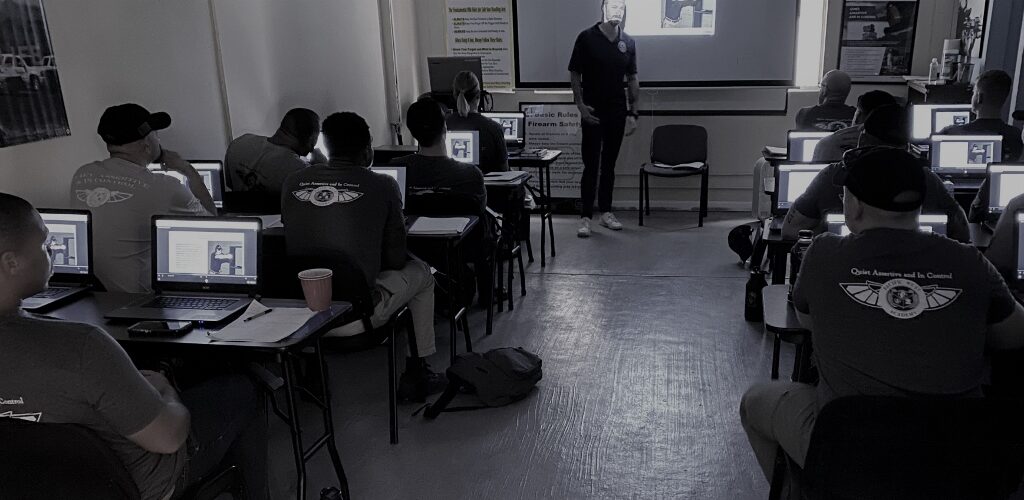

The Importance of Customer Service in Executive Protection
The Importance of Customer Service in Executive Protection
Customer service is often associated with industries like retail, hospitality, or telecommunications, where the primary goal is to ensure customer satisfaction and loyalty. But customer service is relevant in every industry, and arguably most-important in the executive-protection industry.
The balance between an EP agent performing customer service along with their fundamental duties is a delicate one. It takes personal, mental concentration and physical poise, all while simultaneously protecting a client. Beyond providing customer service within a security detail, agents also use customer service skills to work well among their teams and with clients to maintain positive relationships, and provide a high level of service before and after a detail.
Balancing these two aspects requires effective communication, problem-solving abilities, and situational awareness. EP agents must be able to provide excellent customer service while also being vigilant and prepared to handle any security threats or emergencies that may arise.
Creating scripts for emergency situations is another important aspect of the EP agent’s role. These scripts outline specific steps to take in various emergency scenarios, such as a medical emergency, violent confrontation, or natural disaster. Having a well-prepared and rehearsed script can help ensure a quick and effective response in high-pressure situations, potentially saving lives and minimizing harm.
Bodyguards often operate in high-stress environments where tensions can run high. Whether protecting a high-profile individual, a corporate executive, or a public figure, bodyguards must maintain a calm and composed demeanor at all times, but how do they get there?
Communication is a tool. While we all may have the ability to speak, learning about interpersonal communication and practicing communicating with exercises among groups and individuals can enhance an agent’s ability to articulate needs and solutions while alleviating stress or anxiety in the process. Simply put: the more an agent experiences vocalizing plans, needs, and fielding questions, the less stressful it becomes. Here are a few terms agents can embody when navigating with a client and their security needs:
- Active listening. By actively listening to their clients and understanding their routines and habits, bodyguards can identify vulnerabilities and implement appropriate security measures to mitigate risks effectively.
- Forward thinking. Bodyguards must adapt their approach accordingly, taking into account factors such as lifestyle, schedule, and personal preferences. This level of customization not only enhances the client’s safety but also demonstrates a commitment to delivering exceptional service. Whether it involves coordinating travel logistics, conducting venue assessments, or providing discreet protection in public settings, bodyguards must prioritize the client’s comfort and peace of mind at all times. Thinking ahead about all the potential routes and actions of parties involved can make for a seamless detail later.
- De-escalation. Bodyguards often find themselves in situations where they must interact with the public, including fans, paparazzi, or potential adversaries. In such instances, the ability to remain courteous, diplomatic, and assertive can mean the difference between a peaceful resolution and a potentially dangerous confrontation. By employing de-escalation techniques and defusing tense situations through verbal communication, bodyguards can minimize the likelihood of violence and maintain a safe environment for their clients.
- Emotional support and reassurance. During times of uncertainty or distress. Whether accompanying a client to a public event or traveling with them on business trips, bodyguards play a crucial role in ensuring their comfort and peace of mind. This may involve anticipating their needs, offering assistance with daily tasks, or simply providing a reassuring presence in unfamiliar environments.
In a digital world where everything is recorded now, and even moments in time can become rhetorically misconstrued, bodyguards must be mindful of their interactions with the public and maintain a positive and professional image at all times. By engaging with fans, bystanders, and the media in a respectful and courteous manner, bodyguards can enhance the client’s public image and reputation while also projecting an image of competence and reliability.
By embodying professionalism, empathy, and effective communication, bodyguards not only ensure the safety and security of their clients but also cultivate trust, confidence, and loyalty. In a profession where trust and safety is paramount.
Training for an intangible yet highly significant skill doesn’t come easy, especially when many bodyguards are taught to be quiet and discreet—there has to be a balance struck between verbal and non-verbal communication. At Pacific West Academy, our instructors teach how to navigate security details using both skills. Instructors work on exercises that not only show students how to navigate security details with physical poise, but also the distinct verbal communication necessary to make all parties involved feel safe, assured, and comfortable.
Executive protection training at Pacific West Academy is an immersive 10-week course that prepares veterans and civilians for the security industry. Students spend each day learning and exercising roles in the EP industry. At the end of 10 weeks, students will graduate with new knowledge and permits to set them up for executive protection opportunities.
If you’re interested in enhancing your communication to better better prepare yourself for security and executive protection roles, visit PWA.EDU to learn more about the CESS Program.
